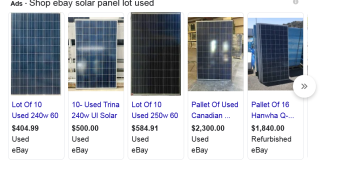If you were to always be plugged in then you could get by with no solar and just a small battery to keep the fridge running while driving.I'm thinking that most of the time I'll be in state parks or some other place where I'll have electricity available. For the NEAR future, I'll just need to keep the fridge powered while in transit. But I can see that in the future--mainly after getting the permanent trailer which is several months away--I'll want to do some boondocking and hit some BLM areas.
If you want to boondock then you need more battery and probably some solar. It all depends on your level of boondocking. Just for a weekend or for weeks at a time?
All of this plays into the final design. If you want to boondock full-time then you need to minimize electrical items. No electric heat, no electric cooking, etc. Hard choices may lie ahead.








